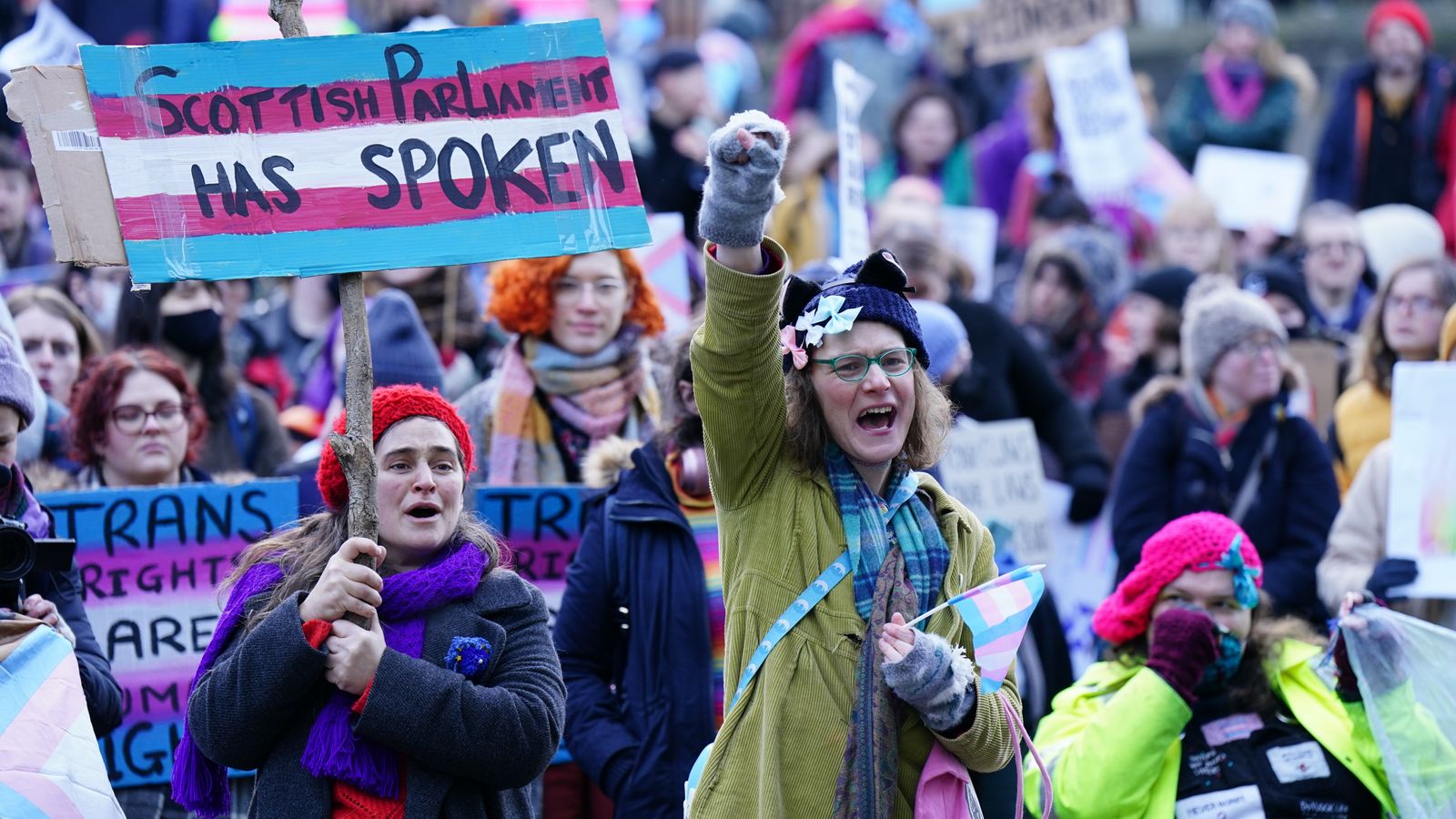The Scottish government has entered a legal battle with the UK government over Holyrood’s controversial gender reform bill.
Social Justice Secretary Shirley-Anne Somerville confirmed on Wednesday that the Scottish government will lodge a petition for a judicial review over Westminster’s veto of the bill.
Ms Somerville said: “The Gender Recognition Reform Bill was passed by an overwhelming majority of the Scottish Parliament, with support from members of all parties.
“The use of Section 35 is an unprecedented challenge to the Scottish Parliament’s ability to legislate on clearly devolved matters and it risks setting a dangerous constitutional precedent.
“In seeking to uphold the democratic will of the parliament and defend devolution, Scottish ministers will lodge a petition for a judicial review of the Secretary of State for Scotland’s decision.
“The UK government gave no advance warning of their use of the power, and neither did they ask for any amendments to the bill throughout its nine month passage through parliament.
“Our offers to work with the UK government on potential changes to the bill have been refused outright by the secretary of state, so legal challenge is our only reasonable means of resolving this situation.
NHS delays: More than 50 operations postponed across Tayside and Fife after ceiling damaged
Caleb Ferguson in court charged with murder after death of Cameron Scott Rae in Perth
Search under way in Scotland for missing hillwalker last seen at Tyndrum Holiday Park near Ben Oss
“It is important to have clarity on the interpretation and scope of the Section 35 power and its impact on devolution. These matters should be legally tested in the courts.”
The Gender Recognition Reform (Scotland) Bill was passed by MSPs just before Christmas.
It then became a constitutional dispute in January when the UK government took the unprecedented step of using section 35 of the Scotland Act to block the bill from receiving royal assent and becoming law.
Scottish Secretary Alister Jack claimed the bill clashed with UK-wide equality laws, and differing systems of gender recognition north and south of the border would create “significant complications”.
Please use Chrome browser for a more accessible video player
The bill aims to simplify the process for trans people to change gender in the eyes of the law.
No diagnosis or medical reports would be required, and the period in which adult applicants need to have lived in their acquired gender would be cut to three months.
Sixteen and 17-year-olds applying for a gender recognition certificate would have to live in their acquired gender for at least six months.
However, critics argue it undermines women’s rights and single-sex spaces.
Be the first to get Breaking News
Install the Sky News app for free
Read more:
UK government blocks Scotland’s gender reform bill in constitutional first
Ash Regan quits over opposition to controversial transgender law hours before vote
Five key challenges Scotland’s new first minister will face
The bill has been a contentious issue within the SNP.
In October last year, Ash Regan quit as community safety minister shortly before MSPs began debating the first stage. A total of seven SNP MSPs broke the whip to vote against it.
During the SNP leadership contest, First Minister Humza Yousaf was the only contender to back action if legal advice supported the move.
Ash Regan believed any court challenge would fail, while Kate Forbes pledged to amend the legislation to ensure it could not be blocked again.
On Tuesday, Mr Yousaf said the block was an “undemocratic veto over legislation that was passed by a majority of the Scottish Parliament”.






















